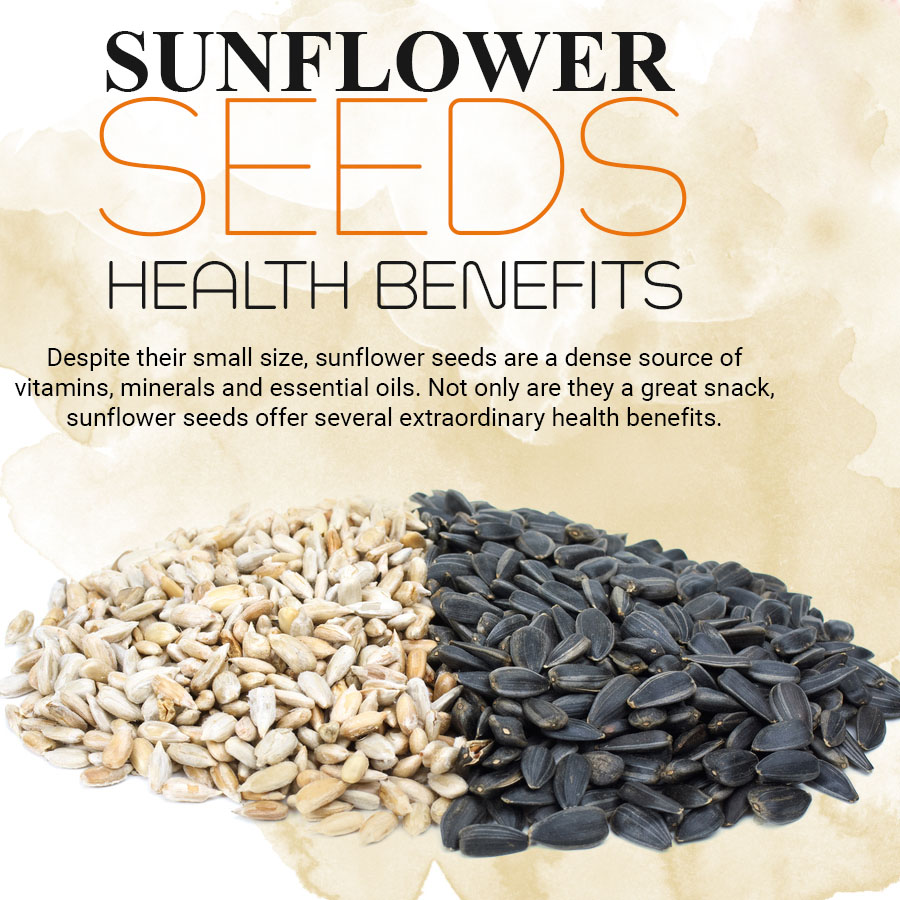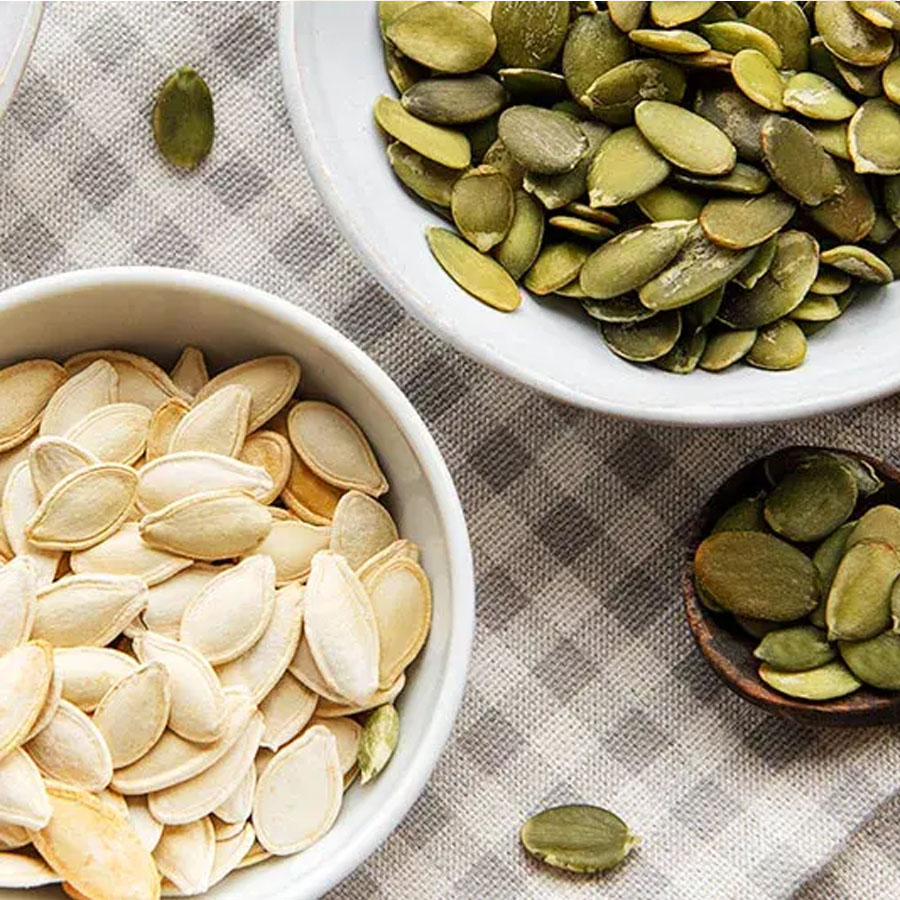
Health Values of Sunflower Seeds
Sunflower seeds are not just a tasty snack but also a powerful punch when it comes to health benefits. When it comes to sunflower seeds’ uses, we can make butter or can also use it in salads. These tiny seeds are enriched with essential nutrients and offer many health benefits for both men and women. In this article, we will explore the sunflower seeds’ benefits for females and males, from their nutritional value to their positive effects on various aspects of our health. So sit back, relax, and get ready to discover the wonders of sunflower seeds. Sunflower Seeds Nutritional Value Sunflower seeds are a nutritional powerhouse, providing an abundance of vitamins, minerals, and healthy fat content. These seeds contain ample amounts of vitamin E, which acts as a powerful antioxidant in the body, protecting our cells from damage caused by free radicals. Additionally, sunflower seeds are rich in B vitamins such as thiamine, riboflavin, and niacin, which are crucial for a healthy nervous system and energy production in our body. They are also an excellent source of minerals like magnesium, selenium, and copper, which play crucial roles in various bodily functions. In general, a ¼ cup serving of unsalted dry roasted sunflower seeds contains the following nutritional values: Nutrient Amount per Serving (1 oz / 28.35 g) Calories 207 kcal Protein 5.8 grams Healthy Fat 19 grams Carbohydrates 7 grams Fiber 3.9 grams Types of sunflower seeds Sunflower seeds come in several varieties. Here are the main types: • Black Oil Sunflower Seeds: Small black seeds are mainly used to make sunflower oil and as bird feed. • Striped Sunflower Seeds: Larger seeds with striped shells, often eaten as snacks. • Hulled Sunflower Seeds: These are striped seeds with the shells removed, used in food like salads and baked goods. • Specialty Seeds: Hulless seeds with very thin shells, are used in specialty foods. 12 Health Values of Sunflower Seeds 1. Boosts Heart Health: You cannot underestimate the nutritional benefits of sunflower seeds. They are heart-healthy due to their high content of monounsaturated and polyunsaturated fats. These healthy fats reduce bad cholesterol (LDL) levels and lower the risk of heart disease. Additionally, the vitamin E present in sunflower seeds acts as an anti-inflammatory agent, protecting the heart from oxidative stress. 2. Supports Brain Function: The abundant vitamin E in sunflower seeds plays a crucial role in supporting brain health. It protects the brain cells and neurons from oxidative damage, preventing cognitive decline and improving memory and concentration. Sunflower seeds also contain omega-3 fatty acids, which play a crucial role in brain development and function. 3. Promotes Healthy Skin: The benefits of having sunflower seeds also reflect on your skin. The vitamin E content in sunflower seeds promotes skin health by nullifying free radicals that can cause premature aging. It also aids in the production of collagen, which keeps the skin firm and supple. The antioxidants present in sunflower seeds help reduce inflammation and protect our skin from damage caused by UV radiation. 4. Enhances Digestive Health: Sunflower seeds contain ample amounts of dietary fiber, which helps improve digestion and stimulates regular bowel movements. The fiber content also helps prevent constipation and aids the growth of beneficial gut bacteria, which are crucial for a healthy digestive system. 5. Supports Weight Loss: The benefits of eating sunflower seeds extend to your weight loss regimen. Despite their small size, sunflower seeds are a satisfying and nutrient-dense snack. They are rich in protein and fiber, which help to keep you feeling full and satisfied, reducing the desire for unhealthy snacks. The healthy fats in sunflower seeds also increase the absorption of fat-soluble vitamins, which are crucial for weight management. 6. Strengthens Bones: Sunflower seeds contain minerals like magnesium, calcium, and copper, which are essential for bone health. These minerals improve bone strength and density, reducing the risk of osteoporosis and fractures. Additionally, sunflower seeds contain phytosterols, which help to reduce inflammation and promote bone health. 7. Boosts Immune System: Sunflower seeds are a powerhouse of antioxidants, vitamins, and minerals that support a healthy immune system. The vitamin E and selenium present in sunflower seeds help to strengthen the immune response and protect the body against infections. The zinc content in sunflower seeds also plays a vital role in immune function. 8. Improves Eye Health: Sunflower seeds are rich in vitamin E and other antioxidants, which help to protect the eyes from oxidative stress and age-related macular degeneration. The zeaxanthin and lutein present in sunflower seeds are crucial for good vision and reducing the risk of cataracts. 9. Regulates Blood Sugar Levels: The high fiber content in sunflower seeds helps regulate blood sugar levels by decreasing glucose absorption into the blood. It can be advantageous for individuals with diabetes or those at risk of developing it. The magnesium content in sunflower seeds also plays a key role in insulin sensitivity. 10. Sunflower Seeds Benefits for Male: Sunflower seeds contain nutrients like vitamin E, selenium, and zinc that are essential for male reproductive health. These nutrients from sunflower seeds help to maintain healthy sperm production, improve fertility, and support overall prostate health. 11. Advantages of Eating Sunflower Seeds for Females: The nutritional value of sunflower seeds is particularly beneficial for women. The vitamin E content helps to alleviate symptoms of premenstrual syndrome (PMS) and menopause, such as mood swings and hot flashes. The magnesium present in sunflower seeds also helps to relieve menstrual cramps and promote relaxation. 12. Provides Anticancer Properties: The antioxidants present in sunflower seeds help neutralize free radicals and protect against cell damage, potentially reducing the risk of certain cancers. The phytosterols in sunflower seeds also have anticancer properties, particularly in relation to breast and colon cancer. Other Health Benefits of Sunflower Seeds • Sunflower Seeds Benefits for Male: Sunflower seeds offer several health benefits for men. They are rich in vitamin E, which supports prostate health and reproductive function. Zinc in the seeds helps produce testosterone, important for fertility. Selenium protects sperm from damage. Adding sunflower seeds to your diet can improve heart health, boost immunity, and provide a nutritious snack for overall well-being. • Sunflower Seeds Benefits for Female: Sunflower seeds provide various health benefits for women. High in vitamin E, they promote healthy skin and contain folate, which is good for reproductive health. Magnesium in the seeds supports bone health and eases PMS symptoms. The essential fatty acids help balance hormones. Including sunflower seeds in your diet can support overall health, hormone balance, and nutrient intake. • Sunflower Seeds Benefits for Hair: Sunflower seeds, rich in essential nutrients, help maintain healthy hair. Vitamin E improves blood flow to the scalp, promoting hair growth and preventing hair loss. Antioxidants protect hair follicles from damage, reducing premature graying. Zinc and selenium nourish the scalp, reducing dandruff and improving hair quality. Eating sunflower seeds can help strengthen and enhance the shine of your hair. Side Effects of Sunflower Seeds • Eating too many sunflower seeds can cause vomiting, stomach pain, and constipation. • People allergic to sunflower seeds may experience symptoms like vomiting, rashes, breathing problems, swelling, and itching around the mouth. • Sunflower seeds are high in calories, so eating too much can lead to weight gain. • They contain small amounts of cadmium, which can harm the kidneys if consumed in large quantities. • Eating sprouted seeds that are contaminated can cause bacterial infections like Salmonella. • Excessive consumption of sunflower seeds may lead to potential side effects in women, such as weight gain due to their high calorie content, or allergic reactions in rare cases.
Related Posts
Benefits of Pumpkin Seeds
How well this mistaken ideas off denouncing pleasure & praisings will give you complete.



